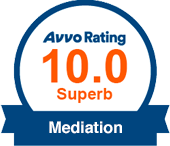Columbia Family & Divorce Lawyer > Blog > Child Custody > TOP 10 NEW YEAR’S RESOLUTIONS FOR PARENTS INVOLVED IN CUSTODY LITIGATION (CONTESTED OR UNCONTESTED)
TOP 10 NEW YEAR’S RESOLUTIONS FOR PARENTS INVOLVED IN CUSTODY LITIGATION (CONTESTED OR UNCONTESTED)
- Do not disparage your co-parent to your children. Your children are keenly aware (even at a very young age) that they share the characteristics and DNA of both of their parents. Putting down your co-parent is identical to putting down your child and will ultimately diminish your child’s confidence and self-worth.
- Do check in with your children consistently throughout the litigation process. Repeatedly and strongly encourage individual counseling or even better, peer counseling groups. It is important to select a professional or organization that has significant experience working with children of separation and divorce. The National Family Resiliency Center is an excellent resource in this regard.
- Do try mediation for the first time, the second time with the same mediator, or with a new mediator. Mediation is a much more child-focused and economical process than litigation. It is important to remember that while divorce and separation are not unhealthy for children, conflict is. A high conflict litigated custody case will almost always have a devastating and lifelong negative effect on your children often impacting their ability to form trusting, healthy, and long-term relationships with partners for themselves. It is never too late to settle your case out of court.
- Do not surprise your children with a new significant other. It is always better to take the introduction of a new partner slowly, waiting for your children to be ready. Even if you think that you and your new significant other are behaving in front of your children like you are just “friends” it is very unlikely that you are fooling them.
- Do sit next to your co-parent at your children’s school, sporting, religious and other events and special occasions (you just need to be civil you do not need to be social or friendly or even talk to each other much – bring a book or crossword or Sudoku puzzle or craft such as needlepoint or knitting). In this manner, your children will not need to be concerned about who to look at or speak to first before, during, and after the event and can just enjoy both of their parents being proud of them.
- Do attend two (2) parent communication counseling sessions with your co-parent. Improved communication can only result in healthier children and lower legal fees. It is important to select a professional or organization that has significant experience working with children of separation and divorce. The National Family Resiliency Center is an excellent resource in this regard.
- Do discuss summer camps, vacations, and all other time-sensitive future plans each year in January. In this manner, the year will be planned out in advance alleviating misunderstandings and stressful interactions for the whole year. As a bonus, your children will know what to expect, will be able to be enrolled in the camps of their choice before they fill up, and legal fees will not be expended later on to straighten out conflicts regarding scheduling.
- Do not use your children as messengers between yourself and your co-parent. This is an unhealthy practice always no matter the age or sophistication of your child. If you are uncomfortable with face-to-face communications then use e-mail, text, or the phone. Sometimes it is helpful to select a time each week to communicate with your co-parent to discuss the week ahead and upcoming events. These types of communications should always be done out of earshot of your children (they can hear you even with earbuds in and especially in the car).
- Do not discuss or share information regarding the litigation, pleadings, paperwork, depositions, court appearances, etc. with your children. If your children are asking a lot of questions, discuss the best way to handle this with your attorney. It may be best to have an attorney appointed for your children (Best Interest Attorney).
- Most importantly, the best thing you can do for your children is settled your case, diminish conflict, and transition (with the help of skilled professionals if necessary) from a stressful, litigation induced conflictual co-parent relationship to a civil, child-focused co-parent relationship.











